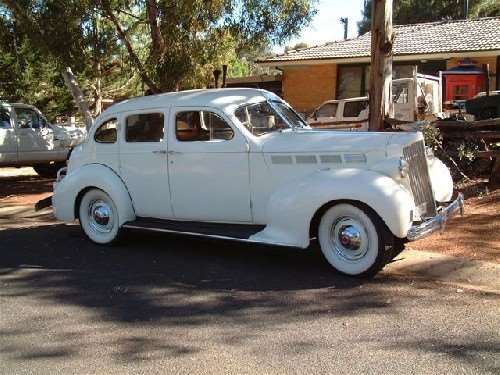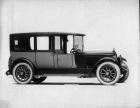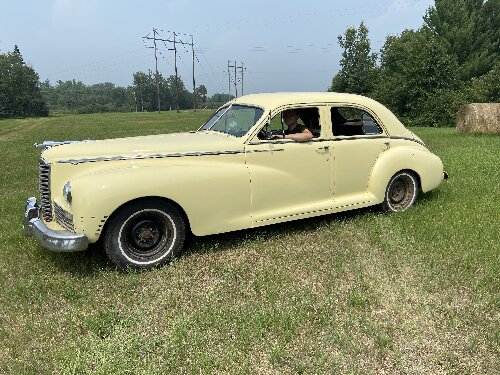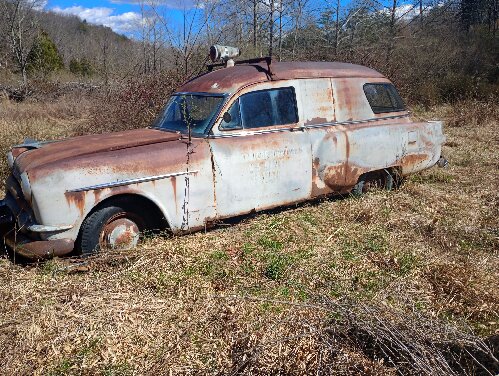|
Re: Unleaded
|
||||
|---|---|---|---|---|
|
Home away from home
|
Good Morning Owen...A ways back in this thread, someone made the comment than premium gasoline(91)Octane burns hotter than regular gasoline (87)Octane. Do you agree? Thanks, Ernie
Posted on: 2016/6/27 12:01
|
|||
|
Caretaker of the 1949-288 Deluxe Touring Sedan
'Miss Prudence' and the 1931 Model A Ford Tudor 'Miss Princess' 
|
||||
|
||||
|
Re: Unleaded
|
||||
|---|---|---|---|---|
|
Home away from home
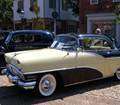
|
This is something I just found on the Kelley Blue Book site regarding octane levels of gasoline:
"Does an Occasional Tank of Premium Help Keep a Car's Motor Clean? As strange as this question sounds, this is a common and long-standing practice among many motorists who consider an occasional tank of premium a special treatment that will help their engines last longer. The basis for this assumption is that a tank of higher octane gasoline, maybe because it costs more, will somehow reduce engine wear. The assumption is fundamentally incorrect, though an occasional tank of premium may help an engine in other ways. An engine's design, which includes such factors as its combustion ratio and its operating temperature, is related to something called an octane rating. Usually, we think of an octane rating as something that applies only to gasoline, but the engine itself has such a rating that represents the minimum octane level that the engine requires for proper operation. An engine needs a minimum level of octane to avoid ping, which is caused by uncontrolled combustion of fuel inside the cylinders. Excessive ping can severely damage the engine. The octane rating on the gasoline is a measure of its anti-knock or anti-ping properties. If your car does not ping on regular, then there is no reason to seek a higher-octane gasoline. The anti-knock level of the regular in this case is adequate for the engine. But as a car gets older, depending on how the car has been driven and cared for, it may need a higher-octane gasoline anytime between four and six years. That's because carbon deposits inside the cylinders raise the combustion ratio, which in turn raises the engine's octane rating. You may notice that your car operated fine on regular fuel when it was new, but pings on regular as it gets older. So, the higher-octane fuel is not something to pamper a new car with but rather help keep an older car running properly. In addition, premium gasoline has some other selling points. Most premium gasolines have a higher-quality additive package put in at the refinery. The actual additives in a particular brand of gasoline are generally not disclosed by refiners. But usually they include detergents and other solvents that keep the carburetor and rest of the fuel system clean." This article, of course, relates to cars probably no older than 20 years, whereas the "newest" Packards were built about 60 years ago (apologies to Studebaker). But I think the message is still relevant. Back in April while on a tour in Virginia, I filled my '55 Clipper with regular unleaded gas that did not contain ethanol. I did experience some pinging and the performance was sluggish. Other members with older, lower-compression engines did not have that problem. When I refilled with premium, my car definitely ran better. Bottom line: If your car runs fine on regular gasoline, then that is what you might as well use. If nothing else, it will cost you less to fill up, thus saving you money that is better spent on beer or wine!
Posted on: 2016/6/27 14:45
|
|||
|
You can make a lot of really neat things from the parts left over after you rebuild your engine ...
|
||||
|
||||
|
Re: Unleaded
|
||||
|---|---|---|---|---|
|
Home away from home
|
Most Interesting...I trust that we should not give a 288 engine wine! Thank you. Ernie
Posted on: 2016/6/27 16:49
|
|||
|
Caretaker of the 1949-288 Deluxe Touring Sedan
'Miss Prudence' and the 1931 Model A Ford Tudor 'Miss Princess' 
|
||||
|
||||
|
Re: Unleaded
|
||||
|---|---|---|---|---|
|
Home away from home
|
I may be incorrect but have been setting my exhaust valve (245,282,288,327, non hyd lifter engines) clearances at 10 thou instead of 7 thou in the hope that the few extra microseconds that the valve is closed may assist in getting rid of a bit of heat from the valve head and lessen the possibility of valve recession. I have had severe valve recession in my 38 Richards Six which I run very hard on the highway ( 70 to 75 mph in OD). Last time I cut down a 288/327 exhaust valve and fitted it. No problems since but I don't drive it as much or as hard nowadays, too many "Federales" and Speed( revenue) Cameras about. PT
Posted on: 2016/6/27 17:51
|
|||
|
I like people, Packards and old motorbikes
|
||||
|
||||
|
Re: Unleaded
|
||||
|---|---|---|---|---|
|
Home away from home

|
I like topics like this, and it's always a good spot to remind my Packard "family" about the engine blocks in our cars. If your engine rebuilder insists on doing hardened valve seats he doesn't know Packard engineering very well. Our blocks, at least until the V-8s (which I admit I'm not hip to) were more like cast steel vs cast iron. If you want a tougher valve system use stainless valves, but leave the seats alone. Almost impossible to pound out short of abuse and neglect. Then there's the gas thing, again. Don't be afraid to add a couple degrees of timing to your ignition. Our cheapest gas is better than the best from long ago so we might as well get as much energy out of the fuel we can, right? It's basically a cliche' to say high octane fuel "burns slower". It simply resists detonation or pre-ignition. What does make an engine run hot is when timing is below specs because ignition happens "later" in the cycle. Most quality carb and fuel pump kits today are ethanol resistant. Old or NOS kits should be avoided as the older soft parts are not. If there really has to be a concern or worry it should be about your soft fuel lines. it doesn't take ethanol blends very long to hurt old rubber hoses. A company called "TECH/AFX" is building fuel lines for modern cars (late 60s and hot rods) that's compatible with ethanol fuels. Not cheap, but you'll only put it on once and forget about it. Even braided stainless can become a hazard because the rubber liner inside will deteriorate and give you something akin to those old lawn soaker hoses full of holes. We should be developing a safe hose pretty soon that's a direct fit for several models of Packard engines including the lovely depression-era cars.
Ok, carry on...
Posted on: 2016/7/6 7:28
|
|||
|
||||


 (73.97 KB)
(73.97 KB)